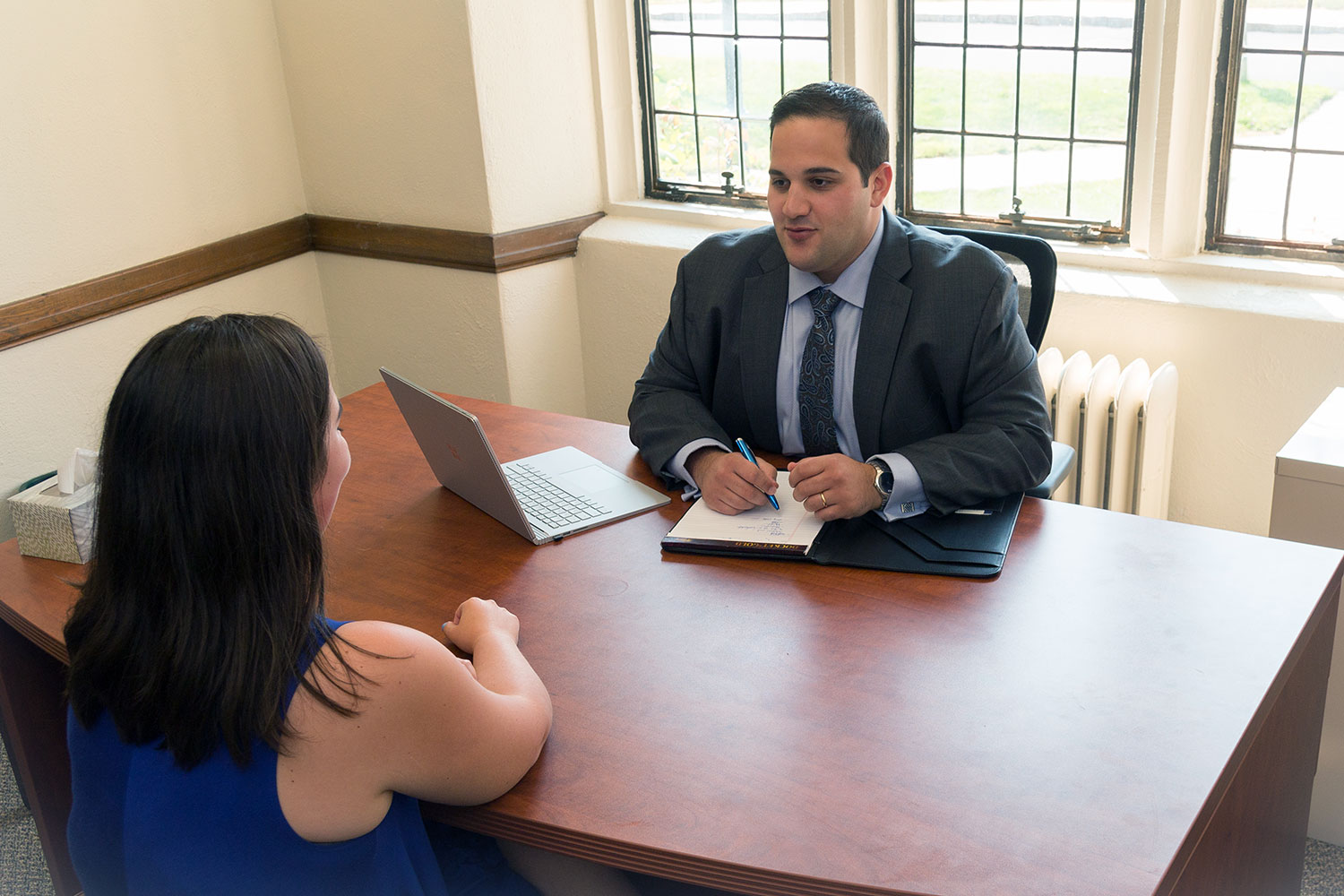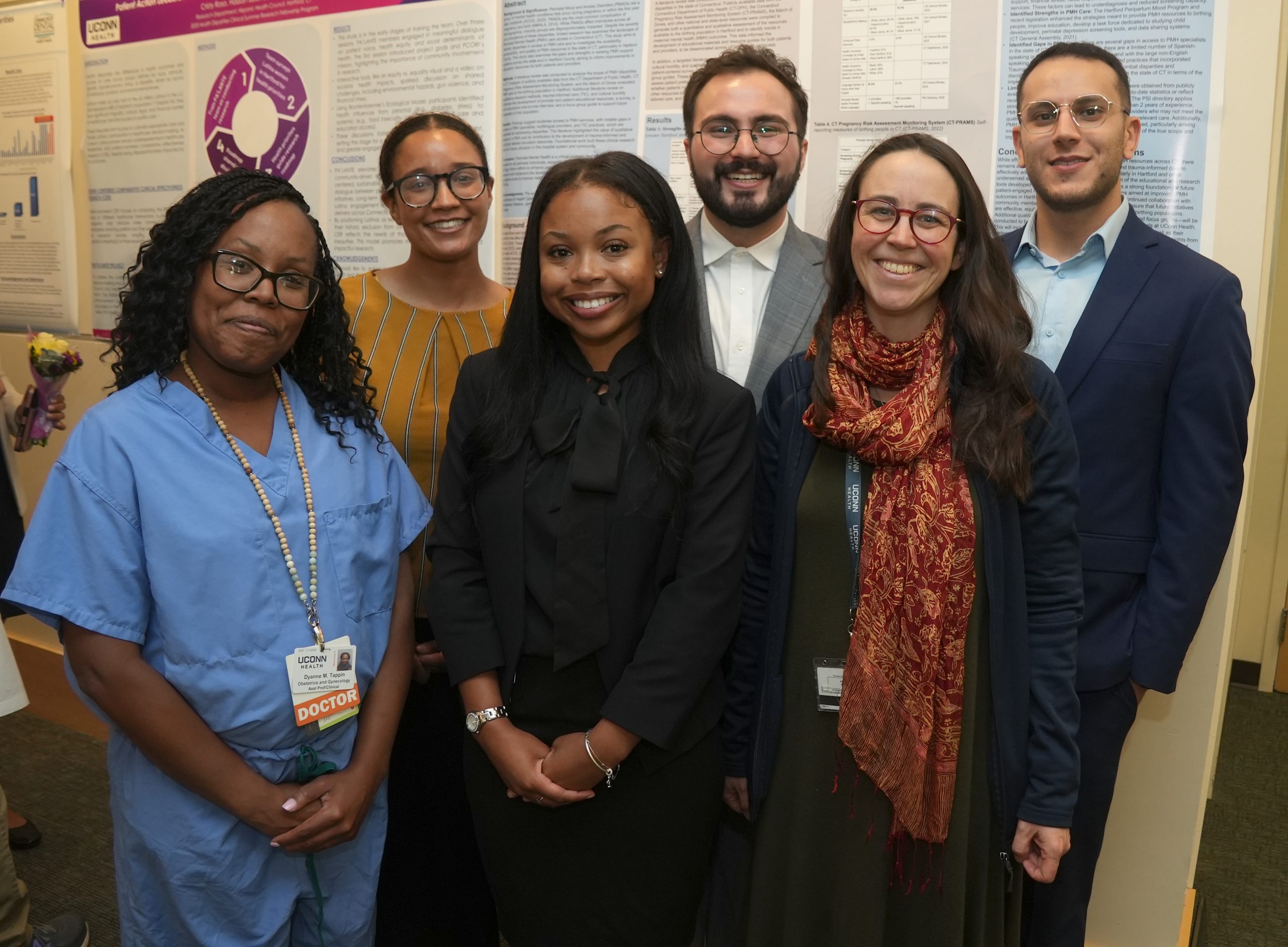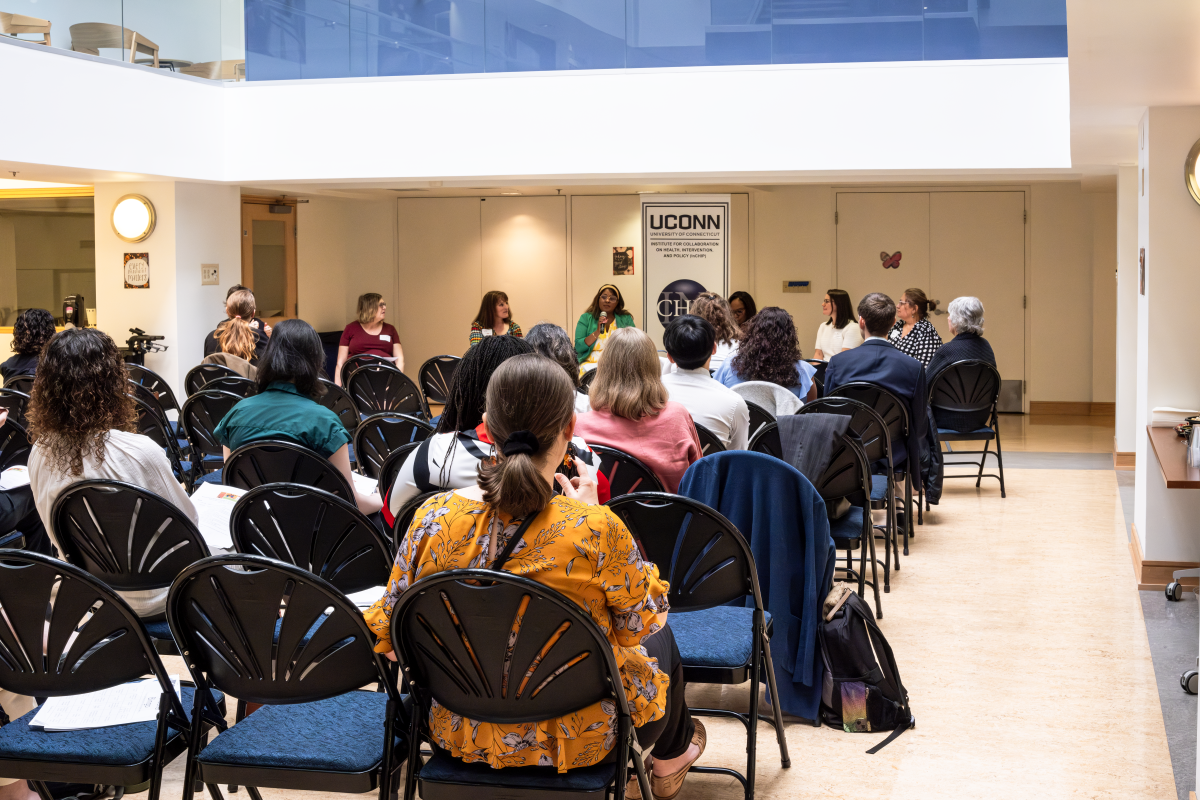After Judy Bakowski moved to Arizona, she kept trying to transfer ownership of her house in Connecticut to her daughter. They even drew up a quitclaim deed and had it notarized, but they kept running into a tangle of red tape.
Deeply frustrated, Bakowski called the Connecticut Community Law Center at UConn School of Law. Within a few weeks, attorney Lynn Perry had worked through the legal issues, and the house in East Granby belonged to Bakowski’s daughter, Trayci Hogaboom.
“It took a load off my mother’s shoulders, more than I can tell you,” Hogaboom says. “Lynn just took it over.”
We see an enormous need for legal assistance at a reasonable cost, particularly among the substantial number of people who don’t qualify for legal aid but can’t afford standard legal fees. — Mark Schreier
Housing problems, mostly eviction and foreclosure, have comprised about a quarter of the referrals to the lawyers at the Connecticut Community Law Center in its first several months of operation. In another case, attorney Santolo Odierna negotiated an agreement to avert foreclosure on a client’s house. He also obtained a court order within hours of a call from a client who was scheduled to be evicted that same evening; the court gave her three weeks’ reprieve and she was able to find new housing for her family.
The center, one of only two legal “incubators” in the state, began training lawyers in March and the lawyers started accepting clients in April. The center helps recent law school graduates establish solo practices, providing office space in the law school’s William F. Starr Hall and offering mentors, training, legal research resources, and other forms of support. Five lawyers have opened practices there to serve low- and moderate-income individuals and families – those whose incomes fall within three times the federal poverty level.
The need is dire. A 2008 study by the Center for Survey Research and Analysis at UConn found that 71 percent of low-income households surveyed had experienced legal problems in the previous year, but only about a quarter received legal help of any kind. Experts believe that gap has widened in recent years.
Housing is not the only need. Family issues – divorce, custody, child support, and alimony – account for about a third of the center’s referrals, according to Mark Schreier, the center’s inaugural director. The attorneys are also handling consumer debt problems, tax issues, and probate cases, he says.
“We see an enormous need for legal assistance at a reasonable cost, particularly among the substantial number of people who don’t qualify for legal aid but can’t afford standard legal fees,” he says. “People confronting potentially life-altering legal issues in the courts should not be alone, and the CCLC helps give more people a voice in such situations.”
For Odierna, providing that voice requires him to be creative about how he serves clients and how he bills them. He often limits the scope of his services by taking on a single aspect of a problem – writing a letter or making a court appearance, for example – instead of managing the entire case. He also works with relatively small retainers, and arranges payment plans when necessary.
Serving low- and moderate-income clients is exactly what Odierna, a 2016 UConn Law graduate, set out to do after working at the law school’s Tax Clinic as a student. “I knew this need was here. That’s part of the reason I wanted to be here,” he says.
After 24 months in the incubator environment, the center’s lawyers are expected to move their practices out into the community, spreading the seeds of innovation to make justice more affordable for more people.



